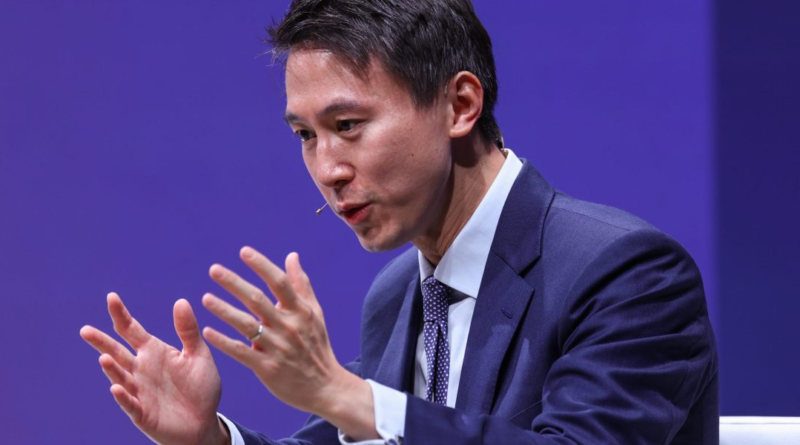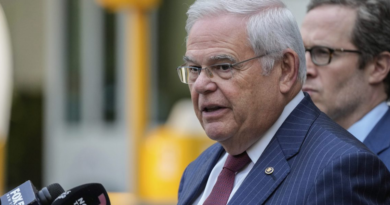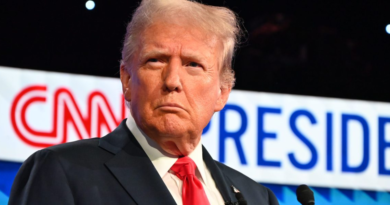A new law will ban TikTok unless China sells most of it. An expert says it’s ‘unconstitutional’ and backed by no evidence
A bill that would ban TikTok in the U.S.—unless its Chinese owner sells most of it—was passed by the Senate and signed into law by President Biden on Wednesday.
Soon after Biden signed the bill, TikTok CEO Shou Zi Chew posted a video urging viewers to “rest assured, we aren’t going anywhere,” adding he is confident TikTok would win in a court challenge. ByteDance said Thursday on Toutiao, a Chinese social-media service it owns, that it “has no plans to sell TikTok.”
The new law comes after years of attempts to ban the hugely popular short-video platform, including by former President Trump, over national-security concerns. But a digital-law expert said the U.S. has provided no evidence to back its claims, and believes the ban is unconstitutional.
Why the ban is unconstitutional
The legislation requires TikTok’s Beijing-based parent company, ByteDance, to sell the majority of the company within nine months, with three more months possible if a sale is in the works. If it doesn’t, the app will be banned. But as legal challenges loom, the timeframe could stretch for years.
In addition to being a major annoyance to its 170 million American users, a TikTok ban could be considered unconstitutional and a violation of free speech of both its users and the platform’s owner, according to Anupam Chander, a professor on global regulation of new technologies at Georgetown University.
That’s because “the clear intrusion upon free expression has not been justified on national-security grounds,” he told Fortune. While the U.S. has claimed China will use the app to surveil Americans and has blamed TikTok for cultivating propaganda, he said the government has not provided any public evidence of that.
In court, most of the debate will likely focus on whether the ban would infringe on Americans’ and TikTok’s First Amendment rights, Chander said. As a Chinese company incorporated in the U.S., he explained, TikTok has the same rights as a U.S. person “and certainly has Constitutional rights.”
TikTok is likely to argue that its right to communicate to the public is being targeted by this law, as if the U.S. government ordered new ownership for the New York Times, he added. It could also argue the law represents “viewpoint discrimination” by targeting their specific views, which Chander said is especially problematic under the First Amendment and is frowned upon by courts.
Other data-privacy solutions
Alternative mechanisms, like creating a national standard of data privacy laws that apply to all companies operating in the U.S., could better protect Americans, he suggested.
While it’s impossible to be entirely free of foreign-surveillance risks on the internet, Chander said a national standard for privacy rules would help minimize the risk of breaches, which is present in several American companies, more broadly. However, crafting and passing such a law would be complicated.
“It’s much easier politically to pass a law that targets TikTok than a privacy law,” he quipped.
The lack of a national standard in privacy laws has garnered substantial concern from several different sectors, but there’s no agreement about whether it should be more strict or less, Chander noted.
Without a national standard, ensuring consent on the internet becomes cumbersome as websites need to ensure each user agrees to information exchanges via cookies and advertising. But each state has different rules, complicating efforts to design platforms with inter-state audiences, like news publishers, he pointed out.
California has passed legislation like the Consumer Privacy Act of 2018, which gives consumers more control over the personal information businesses collect from them through. And since then, the state has passed propositions that give consumers the right to correct inaccurate personal information a business has about them as well as the right to limit the use and disclosure of that data.
Ripple effects on Elon Musk’s X?
If a U.S. ban on TikTok materializes, it could be used as a model in other parts of the world, especially in countries that have criticized American apps for violating their domestic laws, Chander warned. Governments could claim that the U.S now recognizes the “dangers of foreign apps,” and call for their own demands in mandating ownership of American apps.
As a potential example, he cited the Brazilian Supreme Court, which is investigating Elon Musk over the dissemination of fake news on his social platform X as well as for alleged obstruction and criminal organization. If the Brazilian judge were to order a ban on X, “he could cite this TikTok law as support.”




